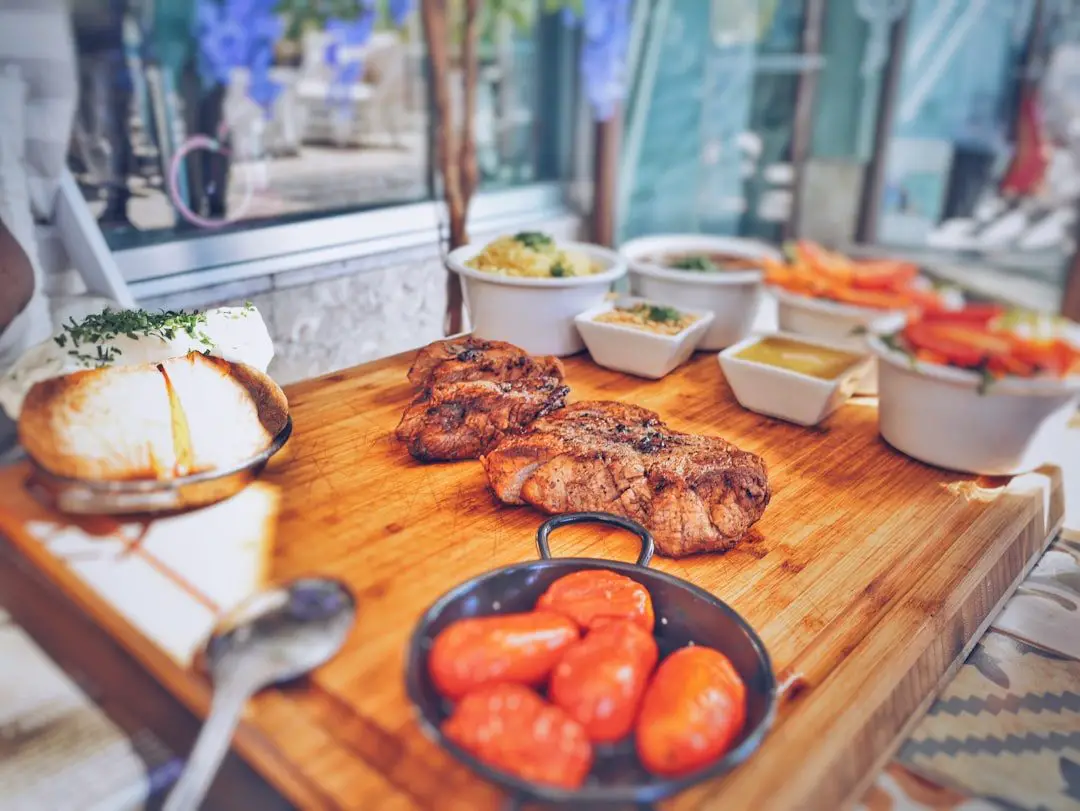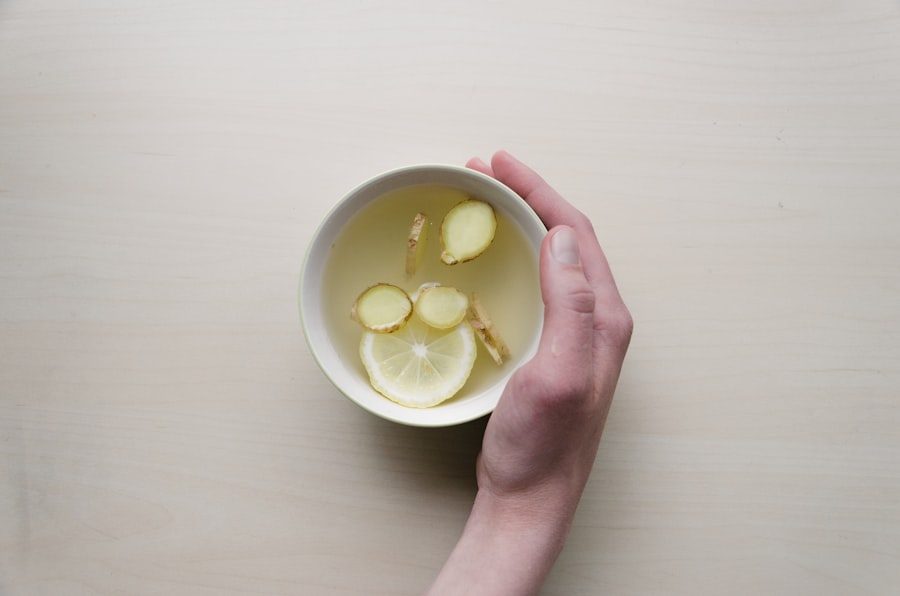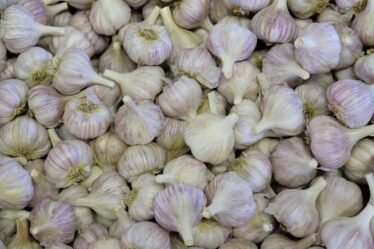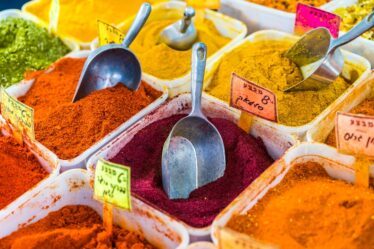
Lemon pepper seasoning is a popular spice blend that combines the tangy flavor of lemon with the zesty kick of black pepper. It is a versatile seasoning that can be used in a variety of dishes to add a burst of flavor. Lemon pepper seasoning has gained popularity in the culinary world for its ability to enhance the taste of both savory and sweet dishes.
Key Takeaways
- Lemon pepper seasoning is a versatile spice blend that can be used in a variety of dishes.
- The seasoning originated in Italy and was popularized in America.
- Lemon pepper seasoning has health benefits and can enhance the flavor of food naturally.
- Tips and tricks for using lemon pepper seasoning include using it as a rub, marinade, or finishing touch.
- Lemon pepper seasoning can be used in recipes ranging from chicken to seafood, and even pasta.
The Origins of Lemon Pepper Seasoning: From Italy to America
The history of lemon pepper seasoning can be traced back to Italy, where it was first created as a way to preserve lemons. The Italians would dry lemon zest and mix it with black pepper to create a flavorful spice blend. This blend was then brought to America by Italian immigrants, where it evolved and became more widely used.
Over time, lemon pepper seasoning has become a staple in American cuisine, particularly in seafood dishes. Its tangy and peppery flavor adds a unique twist to dishes like grilled fish and shrimp scampi. Lemon pepper seasoning has also found its way into other types of cuisine, such as Asian and Mediterranean, where it is used to add a bright and refreshing flavor to stir-fries and salads.
The Health Benefits of Lemon Pepper Seasoning: A Natural Flavor Enhancer
Lemon pepper seasoning not only adds flavor to your dishes but also provides several health benefits. It is rich in vitamin C, which is known for its immune-boosting properties. Vitamin C also acts as an antioxidant, helping to protect your cells from damage caused by free radicals.
In addition to vitamin C, lemon pepper seasoning contains black pepper, which has been shown to have anti-inflammatory properties. Black pepper also aids in digestion and can help improve nutrient absorption.
Furthermore, lemon pepper seasoning is low in calories and fat, making it a healthier alternative to other seasonings that may be high in sodium or artificial additives. By using lemon pepper seasoning in your cooking, you can enhance the flavor of your dishes while also adding a nutritional boost.
How to Use Lemon Pepper Seasoning in Your Cooking: Tips and Tricks
| Tip/Trick | Description |
|---|---|
| 1 | Use lemon pepper seasoning as a dry rub for chicken, fish, or pork. |
| 2 | Add lemon pepper seasoning to roasted vegetables for a zesty flavor. |
| 3 | Sprinkle lemon pepper seasoning on popcorn for a unique snack. |
| 4 | Use lemon pepper seasoning in marinades for a tangy kick. |
| 5 | Mix lemon pepper seasoning with olive oil and use as a salad dressing. |
| 6 | Add lemon pepper seasoning to scrambled eggs for a flavorful breakfast. |
| 7 | Use lemon pepper seasoning in pasta dishes for a citrusy twist. |
| 8 | Sprinkle lemon pepper seasoning on roasted nuts for a savory snack. |
| 9 | Use lemon pepper seasoning in homemade salad dressings or sauces. |
| 10 | Combine lemon pepper seasoning with butter and use as a spread for bread or rolls. |
When using lemon pepper seasoning in your cooking, it’s important to use the right amount to achieve the desired flavor. Start with a small amount and gradually add more if needed. Remember that a little goes a long way, as the flavor of lemon pepper seasoning can be quite potent.
Lemon pepper seasoning can be used in a variety of dishes, from grilled meats to roasted vegetables. It pairs particularly well with chicken and seafood, adding a bright and zesty flavor to these dishes. It can also be used as a seasoning for marinades, dressings, and sauces.
To get the most out of your lemon pepper seasoning, try sprinkling it on freshly cooked dishes just before serving. This will help preserve the vibrant flavors of the lemon and black pepper.
Lemon Pepper Seasoning Recipes: From Chicken to Seafood
There are countless recipes that incorporate lemon pepper seasoning, allowing you to explore its versatility in the kitchen. Here are a few ideas to get you started:
1. Lemon Pepper Grilled Chicken: Marinate chicken breasts in a mixture of lemon juice, olive oil, garlic, and lemon pepper seasoning. Grill until cooked through and serve with a side of roasted vegetables.
2. Lemon Pepper Shrimp Scampi: Sauté shrimp in butter, garlic, and lemon pepper seasoning until pink and cooked through. Serve over pasta or rice for a delicious and flavorful meal.
3. Lemon Pepper Roasted Vegetables: Toss your favorite vegetables in olive oil and lemon pepper seasoning. Roast in the oven until tender and golden brown.
The Best Brands of Lemon Pepper Seasoning: A Comparison Guide

When it comes to choosing the best brand of lemon pepper seasoning, there are several factors to consider. Some brands may have a stronger lemon flavor, while others may have a more pronounced black pepper taste. It’s important to find a brand that suits your personal preferences.
One popular brand of lemon pepper seasoning is McCormick, known for its high-quality spices and seasonings. Their lemon pepper seasoning is made with real lemon zest and black pepper, providing a balanced and flavorful blend.
Another well-regarded brand is Lawry’s, which offers a variety of lemon pepper seasoning options, including a reduced-sodium version. Lawry’s lemon pepper seasoning is made with real lemon peel and coarse-ground black pepper, giving it a bold and zesty flavor.
Ultimately, the best brand of lemon pepper seasoning will depend on your individual taste preferences. It’s worth trying out different brands to find the one that suits your palate.
Homemade Lemon Pepper Seasoning: A DIY Guide
If you prefer to make your own lemon pepper seasoning, it’s surprisingly easy to do so. Here’s a simple recipe to get you started:
Ingredients:
– 2 tablespoons dried lemon zest
– 1 tablespoon black peppercorns
– 1 teaspoon sea salt
Instructions:
1. Using a spice grinder or mortar and pestle, grind the dried lemon zest until it becomes a fine powder.
2. In the same grinder or mortar and pestle, grind the black peppercorns until they are coarsely ground.
3. In a small bowl, combine the ground lemon zest, black pepper, and sea salt.
4. Mix well to ensure that all the ingredients are evenly distributed.
5. Store in an airtight container in a cool, dry place.
By making your own lemon pepper seasoning, you have control over the ingredients and can customize the flavor to suit your taste preferences.
Lemon Pepper Seasoning and Grilling: A Match Made in Heaven
Lemon pepper seasoning is an excellent addition to your grilling repertoire. Its tangy and zesty flavor pairs perfectly with grilled meats, adding a burst of freshness to each bite.
When using lemon pepper seasoning in grilling, it’s important to choose the right meats to complement the flavor. Chicken, fish, and shrimp are all great options, as they absorb the flavors of the seasoning well.
To achieve the perfect flavor, marinate your meats in a mixture of lemon juice, olive oil, garlic, and lemon pepper seasoning for at least 30 minutes before grilling. This will allow the flavors to penetrate the meat and infuse it with a delicious tanginess.
Lemon Pepper Seasoning and Vegetables: A Perfect Pairing
Lemon pepper seasoning can also be used to enhance the flavor of your vegetables. Its bright and zesty taste adds a refreshing twist to roasted or sautéed veggies.
When using lemon pepper seasoning with vegetables, it’s important to choose the right ones that will complement the flavor. Asparagus, broccoli, and zucchini are all great options, as they have a mild flavor that pairs well with the tanginess of the seasoning.
To enhance the flavor of your vegetables, toss them in olive oil and lemon pepper seasoning before roasting or sautéing. This will help bring out their natural flavors and add a delicious zing.
Lemon Pepper Seasoning and Pasta: A Delicious Combination
Lemon pepper seasoning can also be used to add a burst of flavor to your pasta dishes. Its tangy and zesty taste pairs well with both creamy and tomato-based sauces, adding a unique twist to your favorite pasta recipes.
When using lemon pepper seasoning in pasta dishes, it’s important to find the right balance of flavors. Start by adding a small amount of the seasoning to your sauce and taste as you go. You can always add more if needed, but it’s difficult to remove excess seasoning once it’s been added.
Lemon pepper seasoning works particularly well in dishes like lemon pepper shrimp pasta or lemon pepper chicken Alfredo. The tanginess of the seasoning complements the richness of the sauces, creating a harmonious balance of flavors.
Lemon pepper seasoning is a versatile spice blend that adds a burst of flavor to a variety of dishes. Its tangy and zesty taste pairs well with both savory and sweet flavors, making it a popular choice in the culinary world.
Whether you choose to use store-bought lemon pepper seasoning or make your own, there are countless ways to incorporate this flavorful blend into your cooking. From grilled meats to roasted vegetables and pasta dishes, lemon pepper seasoning can elevate the taste of your favorite recipes.
So why not give lemon pepper seasoning a try? Experiment with different dishes and explore the unique flavor profile that this versatile spice blend has to offer. You may just discover a new favorite seasoning that will become a staple in your kitchen.
Looking for the perfect seasoning to elevate your dishes? Look no further than the best lemon pepper seasoning. This versatile blend adds a zesty and tangy flavor to any recipe. Whether you’re making French toast, tuna noodle casserole, or a simple chicken mushroom dish, the best lemon pepper seasoning is sure to enhance the taste and make your meal unforgettable. Check out this article on Flavorful Sips for more delicious recipes that pair perfectly with lemon pepper seasoning: https://flavorfulsips.com/ultimate-french-toast-recipe-guide/.



